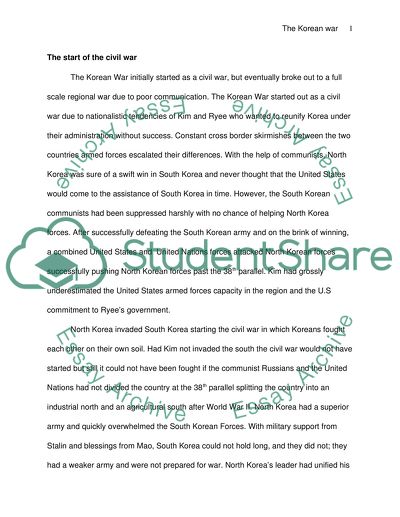Cite this document
(“The Making of the Korean War and Its End Term Paper”, n.d.)
The Making of the Korean War and Its End Term Paper. Retrieved from https://studentshare.org/history/1444807-cold-war-in-east-asia
The Making of the Korean War and Its End Term Paper. Retrieved from https://studentshare.org/history/1444807-cold-war-in-east-asia
(The Making of the Korean War and Its End Term Paper)
The Making of the Korean War and Its End Term Paper. https://studentshare.org/history/1444807-cold-war-in-east-asia.
The Making of the Korean War and Its End Term Paper. https://studentshare.org/history/1444807-cold-war-in-east-asia.
“The Making of the Korean War and Its End Term Paper”, n.d. https://studentshare.org/history/1444807-cold-war-in-east-asia.


